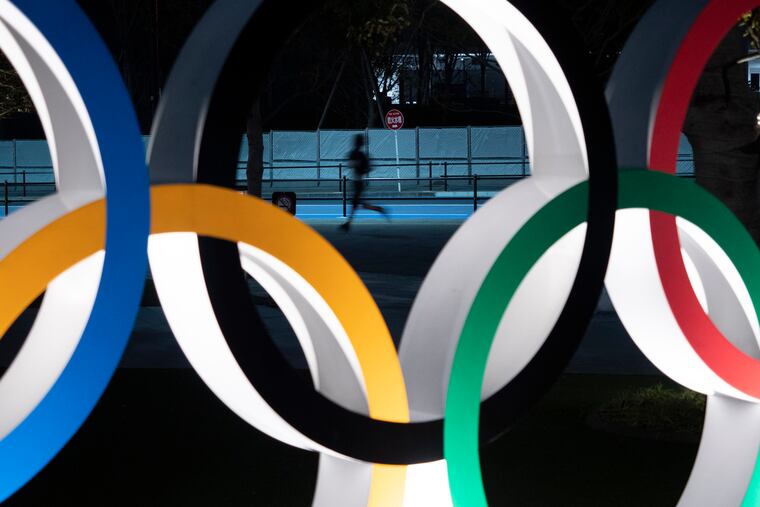Tokyo Olympics to be canceled if not held in 2021, IOC chief says
"You cannot forever employ 3,000 or 5,000 people in an organizing committee," International Olympic Committee President Thomas Bach told BBC Sport.

TOKYO — The Tokyo Olympic Games won't be delayed a second time.
If they can't be held next summer because of the coronavirus, the Games will have to be canceled, International Olympic Committee President Thomas Bach told the BBC.
Bach said Japanese Prime Minister Shinzo Abe had told him next year was "the last option."
"Quite frankly, I have some understanding for this, because you cannot forever employ 3,000 or 5,000 people in an Organizing Committee," Bach told BBC Sport.
"You cannot every year change the entire sports schedule worldwide of all the major federations. You cannot have the athletes being in uncertainty.
"You cannot have so much overlapping with a future Olympic Games, so I have some understanding for this approach by our Japanese partners."
Bach's comments underline Abe's gamble that the world will look different by next summer and ideally that a vaccine will be available by then.
Abe said last month it would be "difficult" to hold the Games in July and August next year if the virus has not been contained, and has stressed his strong desire to stage the tournament "in a complete form," in other words with spectators.
» READ MORE: Bryce Harper’s plea for a shot to play in the Olympics unlikely to be heard by MLB | Bob Brookover
Many medical experts, including the head of the Japanese Medical Association, say that will be tough unless effective vaccines against COVID-19 are available.
The president of the Japanese organizing committee, Yoshiro Mori, also told the Nikkan Sports newspaper late last month the Games would have to be canceled if the pandemic is not under control by next summer. But Mori has also expressed misgivings about Abe's decision to opt for a one-year rather than two-year delay.
He told the Asahi Shimbun newspaper that Abe had insisted on a one-year delay, and had predicted a vaccine would be available by then. Mori described it as a "gamble" by the prime minister.
Abe's three-year term as president of the ruling Liberal Democratic Party ends in September 2021, and next year may represent his last chance to preside over the Games.
Bach declined to say if a vaccine was essential for the Games to go ahead.
"For this question, we are relying on the advice of the World Health Organization," he said. "We have established one principle: to organize these Games in a safe environment for all the participants. Nobody knows what the world will look like in one year, in two months.
"So we have to rely on [experts] and then take the appropriate decision at the appropriate time based on this advice."
But he also opened the door to staging the Games in a controlled environment.
"We have to be prepared for different scenarios. There is the clear commitment to having these games in July next year," he said.
"At the same time, looking at the scenarios this may require toward the organization, with regard to health measures, these may be quarantine for the athletes, for part of the athletes, for other participants."
» FAQ: Your coronavirus questions, answered.
Asked if that might even mean barring spectators, Bach said this was "speculation" — but didn't rule out the possibility.
"This is not what we want," he said. "Because the Olympic spirit is about also uniting the fans and this is what makes the Games so unique that they're in an Olympic Stadium, all the fans from all over the world are together.
“But when it then would come to the decision … I would ask you to give me some more time for consultation with the athletes, with the World Health Organization, with the Japanese partners.”